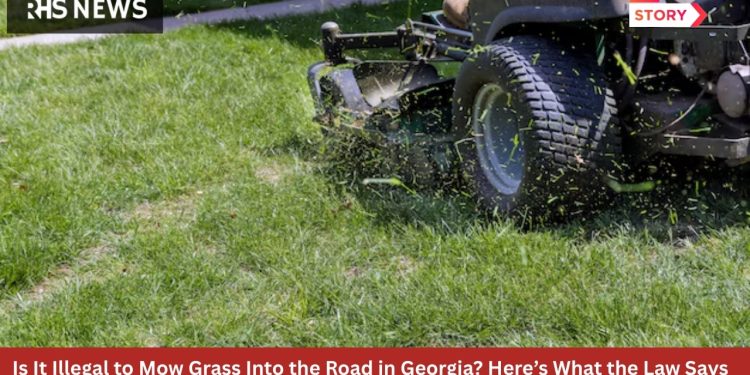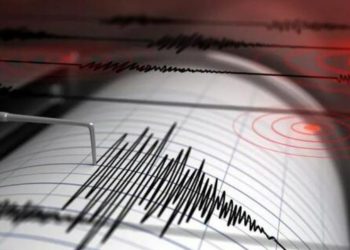When it comes to lawn care, mowing the grass is a regular part of homeownership and property maintenance across Georgia. However, a seemingly harmless act—blowing or mowing grass clippings into the street—can raise legal, environmental, and safety questions. This long-form article explores the legality of mowing grass into the roadway in Georgia, relevant state and municipal laws, the practical risks, and best practices for property owners.
What Happens When Grass Is Mowed Into the Road?
This Article Includes
- 1 What Happens When Grass Is Mowed Into the Road?
- 2 Is It Illegal to Mow Grass Into the Road in Georgia?
- 3 Where State Laws Could Apply
- 4 Local Ordinances Tighten the Rules
- 5 Safety and Liability Concerns
- 6 Environmental and Stormwater Impact
- 7 Fines and Penalties
- 8 Best Practices for Georgia Homeowners and Landscapers
- 9 Benefits of Proper Grass Management
- 10 What If You See Someone Blowing Grass Into the Road?
- 11 Looking to the Future: Calls for Statewide Law
- 12 Conclusion
At first glance, it’s easy to dismiss grass clippings as a minor nuisance. However, when clippings are blown or left in the street, they create more serious problems:
- Grass clippings can make road surfaces slippery, especially for motorcycles and bicycles, causing a significant hazard.
- Clippings clog up stormwater systems, leading to backups and localized flooding after heavy rains.
- Runoff containing lawn debris often ends up in waterways, increasing pollution and harming aquatic ecosystems.
- In areas with strict ordinances, grass in the road can lead to code violations or fines.
Is It Illegal to Mow Grass Into the Road in Georgia?
Contrary to common belief, Georgia does not have a statewide law that specifically outlaws blowing or mowing grass into public roads. This means there is no exact Georgia statute that states: “It is illegal to discharge grass clippings on a roadway.” However, that does not mean the behavior is consequence-free or permitted everywhere.
Where State Laws Could Apply
While explicit language is lacking, other Georgia laws can apply:
- Georgia’s littering statutes make it unlawful to intentionally discard or deposit litter on public property, including roadways. Grass clippings, as yard waste, can be interpreted as “litter” under O.C.G.A. § 16-7-43 or related statutes. Enforcement, however, is inconsistent and often left to local authorities’ discretion.
- Obstructing a highway or street is illegal if it renders passage unsafe or difficult for others. While this law more often targets larger obstacles, clippings could be interpreted as an “obstruction” if they contribute to an accident or safety hazard.
- Environmental protection rules require the responsible disposal and management of yard trimmings, favoring composting or mulching over dumping them on impervious surfaces like pavement.
Local Ordinances Tighten the Rules
Many cities and counties in Georgia address this issue directly in their municipal codes. For example:
- The city of Dalton’s Code of Ordinances makes it illegal to blow or deposit litter, including yard trimmings, into streets, waterways, or the stormwater collection system. The law explicitly prohibits improper disposal of grass clippings in public areas.
- Property owners in some jurisdictions are responsible for keeping the adjacent sidewalk and curb free of debris, including grass clippings.
- Local environmental ordinances may prohibit anything that blocks stormwater drainage or threatens water quality, with yard waste being a prime offender.
Many other counties and municipalities (including Atlanta suburbs and smaller towns) have adopted similar language in their code enforcement regulations with the aim of keeping roads safe and protecting expensive public infrastructure.
Safety and Liability Concerns
Even where enforcement is spotty or ambiguous, the risks from blowing grass into the road are real:
- Grass clippings create a dangerously slick surface for motorcyclists and bicyclists, often compared to riding over ice. The Motorcycle Safety Foundation and accident lawyers frequently warn against this hazard.
- If a motorist or cyclist is injured because of grass clippings left by a property owner or landscaper, that party could potentially face liability for negligence—even without an explicit law.
- Lawn care businesses can be held legally responsible if an accident is linked to their practices. There have been civil lawsuits across the country involving accidents caused by grass in the roadway.
Environmental and Stormwater Impact
Georgia’s Environmental Protection Division recommends proper management of yard trimmings for both municipal and private landscaping. When grass is blown into the road, it:
- Washes into storm drains, leading to clogs that cause city or neighborhood flooding.
- Enters waterways as non-point-source pollution. Grass releases nutrients (like nitrogen and phosphorus), which foster harmful algae blooms and degrade water quality.
- Increases municipal costs for street sweeping and stormwater system repairs.
By state mandate, most Georgia counties restrict the disposal of yard waste in landfills and encourage grass cycling, composting, and “mulch mowing.”
Fines and Penalties
If you violate a city or county ordinance prohibiting blowing grass into the road, you could be cited by code enforcement. Penalties vary, but they may include:
- Written warnings for first-time or minor offenses.
- Fines, which can range from $25 to several hundred dollars depending on the jurisdiction and severity.
- In rare cases, repeat or egregious violations can lead to court action or community service requirements.
The decision to cite or fine is ultimately up to the officer, prosecutor, or local enforcement agency.
Best Practices for Georgia Homeowners and Landscapers
Even if not explicitly illegal in every county, it is always best to handle lawn clippings responsibly:
- Direct the mower chute away from the road, driveway, and sidewalks.
- Use a grass catcher or bag attachment on your mower.
- Sweep or blow errant clippings back onto your lawn, not the street.
- Compost your lawn clippings, or use them as mulch in garden beds and landscaping.
- If you hire a lawn care service, instruct workers not to discharge clippings onto public roads.
Benefits of Proper Grass Management
- Safe roads: Preventing slippery surfaces helps protect motorcyclists, cyclists, and drivers.
- Cleaner water: Keeps fertilizers and organic debris out of storm drains and rivers.
- Neighborhood aesthetics: A well-maintained curb and street edge contributes to property values and curb appeal.
- Legal compliance: Avoids code violations, fines, and possible legal liability.
Grass Clippings By the Numbers
-
Studies demonstrate that just a thin layer of grass clippings can reduce tire traction by as much as 50% for motorcycles and bicycles, sharply increasing accident risk.
-
A single acre of suburban lawn can produce more than 2,000 pounds of clippings each growing season. If even a small fraction ends up in storm drains, it can compound local flooding problems.
-
The U.S. Environmental Protection Agency estimates that improper lawn care contributes thousands of tons of organic pollution to urban waterways each year, increasing municipal water treatment costs.
What If You See Someone Blowing Grass Into the Road?
If you witness a neighbor or landscaping crew repeatedly blowing grass onto public streets, start by politely informing them of the risks. Many people are unaware of the hazard or local restrictions. If the practice continues, you may wish to contact your local code enforcement office or public works department for guidance.
Looking to the Future: Calls for Statewide Law
Some advocates, including motorcyclist safety groups, are pressing for a clear statewide statute that would explicitly ban grass or yard debris on roads throughout Georgia. Such a law could help standardize enforcement, reduce confusion, and keep all road users safer.
Conclusion
While there is no specific state law in Georgia prohibiting mowing grass into the road, a combination of general litter and obstruction laws, as well as local ordinances, often make the practice illegal or subject to fines. Beyond legality, leaving clippings in the street creates hazards for travelers and the environment. Georgia residents are best served by disposing of lawn waste properly—a simple act that improves safety, prevents pollution, and safeguards public infrastructure.
By acting responsibly and staying informed about both local codes and best practices, Georgia property owners and lawn care professionals contribute to safer streets, cleaner environments, and thriving communities.
Helpful Links
- https://www.spauldinginjurylaw.com/blogs/5758/motorcycles-grass-clippings
- https://www.steelhorselaw.com/news/do-grass-clippings-cause-motorcycle-accidents
- https://braunslaw.com/blog/do-grass-clippings-cause-motorcycle-accidents/
- https://www.avvo.com/legal-answers/is-it-illegal-to-leave-yard-waste-grass-clippings–5809673.html









